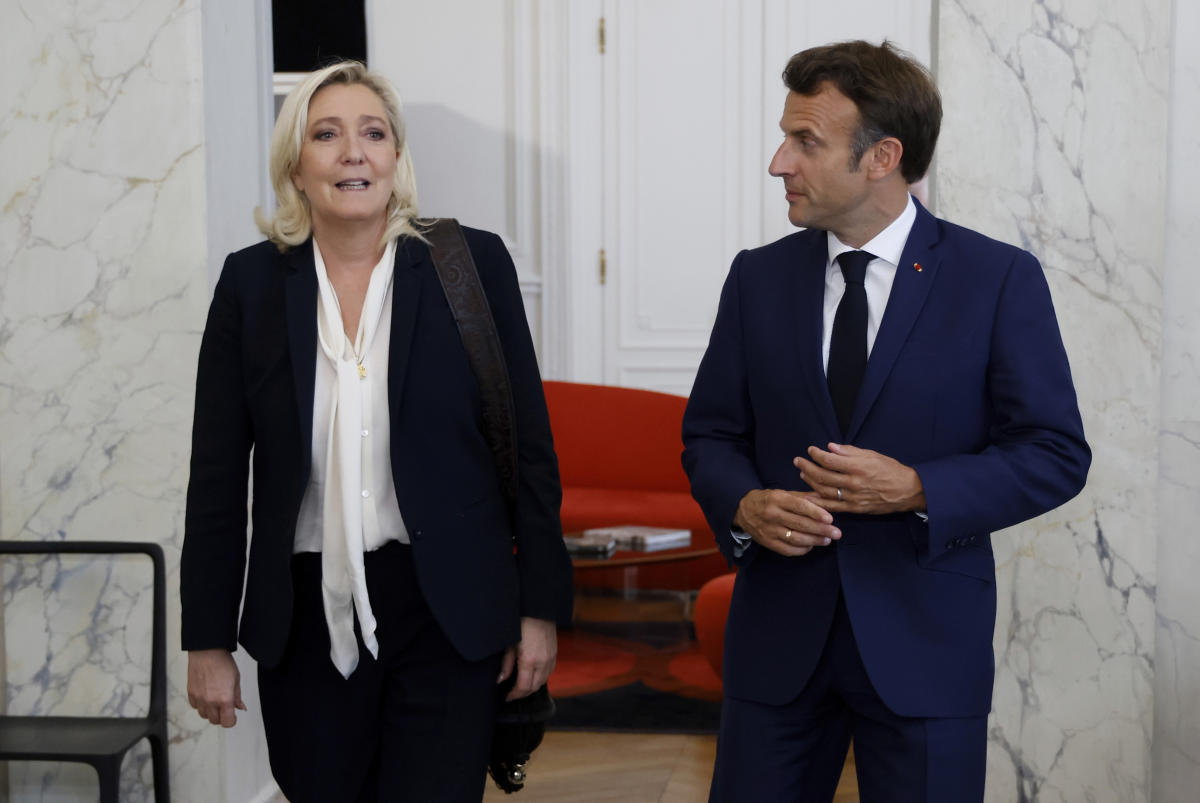PARIS (AP) — Voters in mainland France began casting their ballots Sunday in the first round of exceptional parliamentary elections that could put the French government in the hands of nationalist, far-right parties for the first time since the Nazi era.
The outcome of the two rounds of elections, which end on July 7, could have implications for European financial markets, Western support for Ukraine and the way France’s nuclear arsenal and global military power are managed.
Many French voters are frustrated with inflation and economic concerns, and with President Emmanuel Macron’s leadership, which they see as arrogant and out of touch with their lives. Marine Le Pen’s anti-immigration party Rassemblement National has tapped into and fanned that discontent, particularly through online platforms like TikTok, dominating all opinion polls ahead of the elections.
A new coalition on the left, the New Popular Front, also poses a challenge to the pro-business Macron and his centrist alliance Together for the Republic.
There are 49.5 million registered voters who will elect 577 members of the National Assembly, the French parliament, in two rounds of voting.
After a blitz campaign marked by mounting hate speech, voting started early in France’s overseas territories and polling stations in mainland France opened at 8am (0600 GMT) on Sunday. The first poll forecasts are expected at 8pm (1800 GMT), when the last polling stations close, with early official results expected later on Sunday evening.
In the troubled French Pacific territory of New Caledonia, polls closed at 5 p.m. local time due to an 8 p.m.-6 a.m. curfew that authorities in the archipelago have extended until July 8.
Nine people were killed during a two-week unrest in New Caledonia, where the indigenous Kanak people have long tried to break free from France, which first seized the Pacific territory in 1853. Violence flared on May 13 in response to attempts by Macron’s government. to amend the French constitution and change voting lists in New Caledonia, which Kanaks feared would further marginalize them.
Voters in France’s other overseas territories, Saint-Pierre-et-Miquelon, Saint-Barthélemy, Saint-Martin, Guadeloupe, Martinique, Guyana, French Polynesia and those who vote in offices opened by embassies and consular posts across the Americas, cast their ballots on Saturday.
Macron called early elections after his party was trounced in the European Parliament elections in June by Rassemblement National, which has historical ties to racism and anti-Semitism and is hostile to France’s Muslim community. It was a bold gamble that French voters complacent about the European Union elections would be galvanized to run for moderate forces in a national election to keep the far right out of power.
Instead, pre-election opinion polls suggest that the National Rally is gaining support and has a chance of winning a parliamentary majority. In that scenario, Macron would be expected to appoint 28-year-old National Rally President Jordan Bardella as prime minister in an uneasy power-sharing system known as “cohabitation.”
Macron has said he will not step down until his presidential term ends in 2027, but cohabitation would weaken him both domestically and on the world stage.
The results of the first round provide a picture of general voter sentiment, but not necessarily of the overall composition of the next National Assembly. Predictions are extremely difficult because of the complex voting system and because parties will work between the two rounds to forge alliances in some constituencies or withdraw from others.
In the past, such tactical maneuvers helped keep far-right candidates from power. But now support for Le Pen’s party has spread deep and wide.
Bardella, who has no government experience, says he would use the prime minister’s powers to stop Macron from continuing to supply long-range weapons to Ukraine for the war with Russia. His party has historical ties with Russia.
The party has also questioned the right to citizenship for people born in France and wants to restrict the rights of French citizens with dual nationality. Critics say this undermines basic human rights and threatens France’s democratic ideals.
Meanwhile, the huge public spending promises of the National Rally and especially the left-wing coalition have rattled markets and fuelled concerns about France’s heavy debt burden, which has already been criticised by EU watchdogs.
___
Follow AP’s election coverage at https://apnews.com/hub/global-elections
